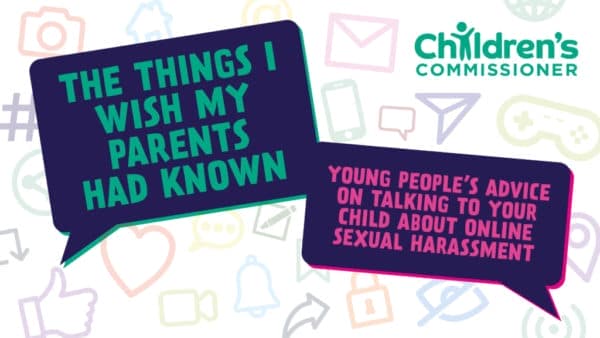Dame Rachel de Souza DBE prefaces this guide with the following: “Since March 2020, thousands of young women have been sharing their experiences of sexual harassment through the ‘Everyone’s Invited’ project. This is an online platform where girls ‑ who are still mostly in school – have described growing up in a world where harassment, including sexualised comments, slut‑shaming and the sharing of nude pictures, is part of their everyday lives. . . .
Children want to talk to their parents and carers about this. We know this because they’ve told us. And that’s what is at the heart of this guidance.”
1. Don't wait for the crisis
Start speaking to your kids about these issues before you first give them a phone or set up a social media account. This might feel very early, but you can do it in an age‑appropriate way. It is better to be proactive than reactive.
2. Don't just mention it once
Keep the conversation going. Adapt to your child’s maturity levels.
3. Don't scare them with 'the big talk'
Keep it casual, find everyday opportunities to speak about these issues – like when you’re walking or driving somewhere.
4. Don't punish them before listening
Focus on your child’s emotions first. Your immediate instinct might be to punish them when something goes wrong, but your child needs you to listen and to be non‑judgmental.
5. Don’t pretend these issues don’t exist
Keep curious about the technology your child is using and stay up to date with platforms, apps and trends.
6. Don’t leave your child unsupervised
Set boundaries. Use filtering tools to limit your child’s exposure to harmful content. Decide on rules and boundaries with your child, allowing them to input. Explain which monitoring and filtering tools you are using and why.
The full guide shares information on pornography, sharing nudes, sexualised bullying, editing photos and body image, and peer pressure.


